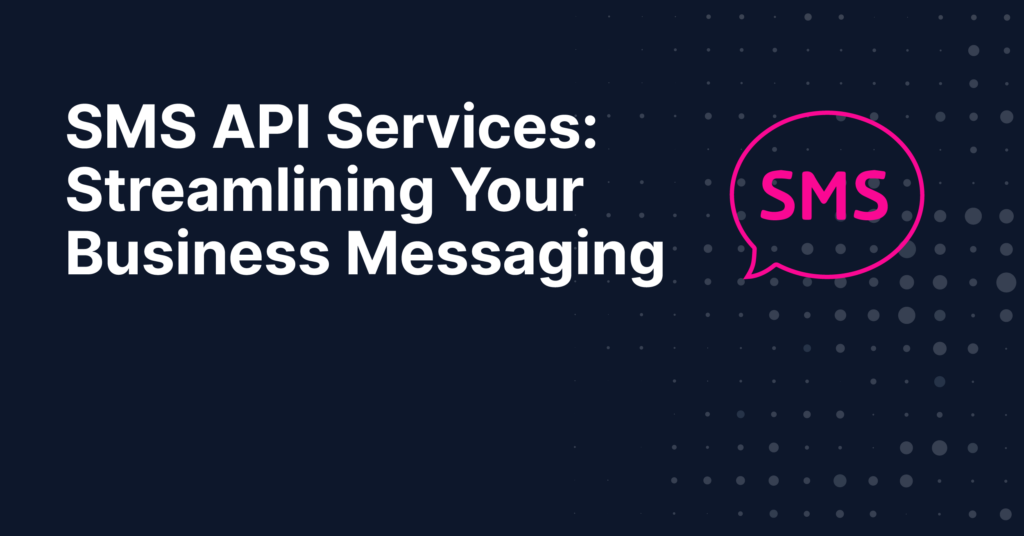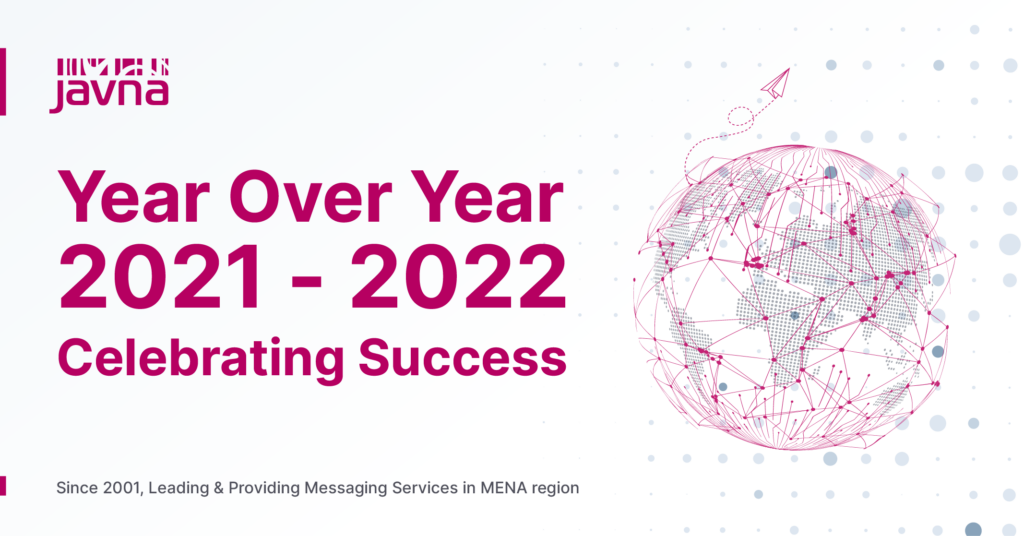SMS API services have become an integral part of modern business communication strategies. This article will guide you through the fundamentals of SMS API, its significant benefits for businesses, and how it streamlines communication processes. You will gain insights into the implementation, diverse applications, and the crucial role SMS API plays in enhancing customer engagement and operational efficiency. Understanding SMS API services is essential for any business looking to leverage technology for effective communication and improved customer interactions.
1. Understanding SMS API
-
Explanation of SMS API and its basic functionalities
SMS API (Short Message Service Application Programming Interface) is a framework that enables businesses to send and receive SMS messages automatically through their systems. It acts as a bridge between the business’s software and the SMS texting service, allowing for the integration of SMS capabilities into business applications.
Basic Functionalities of SMS API:
-
- Automated Message Sending: It allows for sending text messages directly from a business application or system.
- Receiving Replies: SMS API can facilitate the reception of messages, enabling two-way communication.
- Message Scheduling: It allows scheduling messages for future delivery, optimizing communication timing.
- Customization: SMS API supports customization of message content for different recipients, enhancing the relevance of communication.
- Reporting and Analytics: It provides data on message delivery status and engagement, helping businesses track the effectiveness of their communication strategies.
Through these functionalities, SMS API is a versatile tool in business communication, offering efficiency and a personalized approach to reaching out to customers.
2. Benefits of SMS API for Businesses
-
How SMS API services benefit businesses in various sectors
SMS API services offer a multitude of benefits for businesses across various sectors:
-
- Increased Efficiency: Automated SMS communication streamlines processes, saving time and resources.
- Enhanced Customer Engagement: Personalized and timely messages improve customer interactions and satisfaction.
- Wider Reach: Reach a broad audience effectively, as SMS does not require internet connectivity.
- Cost-Effectiveness: Compared to other forms of marketing and communication, SMS APIs are cost-efficient and offer a high return on investment.
- Real-Time Communication: Immediate delivery of messages ensures real-time engagement with customers.
- Improved Response Rates: SMS typically sees higher response rates than emails, making it an effective tool for promotions and customer feedback.
In various sectors, from retail to healthcare, SMS API services enhance the way businesses communicate, offering tangible improvements in customer service, marketing, and operational efficiency.
Discover how Javna can assist you in harnessing these benefits for your business.
3. Use Cases and Applications
-
Exploration of various use cases and practical applications of SMS API services in different industries
SMS API services find versatile applications across various industries, each leveraging its capabilities to enhance communication and operations:
-
- Retail and eCommerce: Retail and eCommerce businesses use SMS APIs for sending promotional offers, order confirmations, and shipping updates to customers.
- Healthcare: Hospitals and clinics utilize it for appointment reminders, patient follow-ups, and health alerts.
- Banking and Finance: Banks employ SMS API for transaction alerts, fraud warnings, and account balance updates.
- Education: Educational institutions send out event notifications, schedule changes, and emergency alerts through SMS.
- Travel and Hospitality: Hotels and restaurants use it for booking confirmations, guest services, and feedback collection.
- Logistics and Transportation: For sending delivery status updates, dispatch notifications, and driver communication.
These examples illustrate the broad adaptability of SMS API services, enabling businesses in different sectors to communicate effectively and efficiently with their clients and workforce.
4. Choosing the Right SMS API Provider
-
Criteria to consider when selecting an SMS API provider for business needs
Selecting the right SMS API provider is crucial for effective business communication. Here are key criteria to consider:
-
- Reliability and Uptime: Ensure the provider offers high reliability and minimal downtime for consistent service.
- Network Coverage: Look for extensive global and local network coverage to reach a wide audience.
- Security and Compliance: The provider should adhere to security standards and comply with data protection regulations.
- Scalability: Choose a provider that can scale services according to your business growth and varying needs.
- Integration Ease: The SMS API should easily integrate with your existing systems and require minimal technical effort.
- Support and Service: Consider providers offering robust customer support and technical assistance.
- Cost-Effectiveness: Evaluate the pricing structure to ensure it aligns with your budget and offers value for money.
- Analytics and Reporting: Access to detailed analytics and reporting features is essential for tracking and optimizing your communication strategies.
These criteria will guide you in choosing an SMS API provider that best suits your business’s specific communication requirements and objectives. With Javna, you gain the added advantage of cutting-edge technology, personalized service, and a track record of excellence, making us an ideal partner to elevate your communication strategies.
5. Future of SMS API Services
As technology continually advances, the future of SMS API services holds promising developments in the realm of business communication. With the ever-increasing reliance on mobile devices and the need for seamless and efficient communication between businesses and their customers, SMS API services are poised for evolution.
Speculation abounds regarding future developments, including the integration of more advanced artificial intelligence (AI) and chatbot functionalities into SMS interactions. This could lead to more personalized and automated customer interactions, enhancing user experiences.
Additionally, the continued expansion of Rich Communication Services (RCS) may offer businesses a richer and more interactive messaging platform compared to traditional SMS. As businesses seek innovative ways to engage with their audiences, SMS API services are likely to adapt and provide even more sophisticated tools and features to meet evolving communication needs. The future holds exciting possibilities for the synergy between SMS API services and the ever-evolving landscape of business communication.
6. Conclusion
In conclusion, SMS API services play a pivotal role in modern business communication. They offer unparalleled efficiency, reach, and flexibility, allowing businesses to connect with their audience in a direct and personalized manner. From simplifying operations to enhancing customer engagement, the impact of SMS APIs is profound across various industries.
The ability to integrate seamlessly into existing systems, coupled with high reliability and security, makes SMS API an indispensable tool for businesses looking to thrive in a competitive digital landscape. As we move forward, the strategic use of SMS API services will continue to be a key differentiator in effective business communication.
7. FAQs about SMS API Services
-
What is an SMS API service?
SMS API service refers to a communication solution that allows businesses and developers to integrate Short Message Service (SMS) functionality into their applications, websites, or systems through Application Programming Interfaces (APIs). It enables automated and programmable sending and receiving of text messages, facilitating various use cases such as notifications, alerts, two-factor authentication (2FA), and customer engagement. This service streamlines communication by providing a seamless way to interact with users via SMS, enhancing customer experiences and business operations.
-
Is SMS gateway an API?
No, an SMS gateway is not an API, but it can be used in conjunction with SMS APIs. An SMS gateway is a hardware or software solution that acts as a bridge between a telecommunications network and an application or system. It facilitates the transmission of SMS messages to and from mobile devices. On the other hand, an SMS API is a set of rules and protocols that allow developers to programmatically send and receive SMS messages. While they serve related purposes, an SMS gateway handles the actual transmission of messages, while an SMS API provides the interface for integrating SMS functionality into applications and systems. They are often used together to enable SMS communication.
-
How do I choose an SMS API provider?
When choosing an SMS API provider, consider several factors to ensure a reliable and efficient service. It’s advisable to prioritize providers with a strong track record in the industry, such as Javna, a leading Communication Platform as a Service (CPaaS) provider. Key factors to consider include:
-
- Reliability: Opt for a provider known for high service uptime and message delivery rates.
- Scalability: Ensure the provider can accommodate your growing messaging needs.
- Coverage: Check if the provider offers global network coverage to reach your target audience.
- Pricing: Evaluate pricing plans to match your budget and usage requirements.
- API Features: Look for an API with the features you need, such as two-factor authentication (2FA), message personalization, and reporting.
- Support: Choose a provider with excellent customer support to address any issues or questions.
- Security: Prioritize providers that adhere to industry-standard security protocols to protect your data and communications.
By considering these factors, you can make an informed decision and benefit from a reliable SMS API service like Javna.
-
What is messages API?
A messages API, in the context of SMS communication, is an Application Programming Interface (API) that enables developers to programmatically send and receive text messages (SMS) through an integrated platform. This API allows businesses and applications to automate messaging processes, facilitating tasks such as notifications, alerts, and customer engagement. It provides a structured and efficient way to manage SMS communication, making it a valuable tool for businesses and developers to enhance user experiences and streamline messaging operations.



